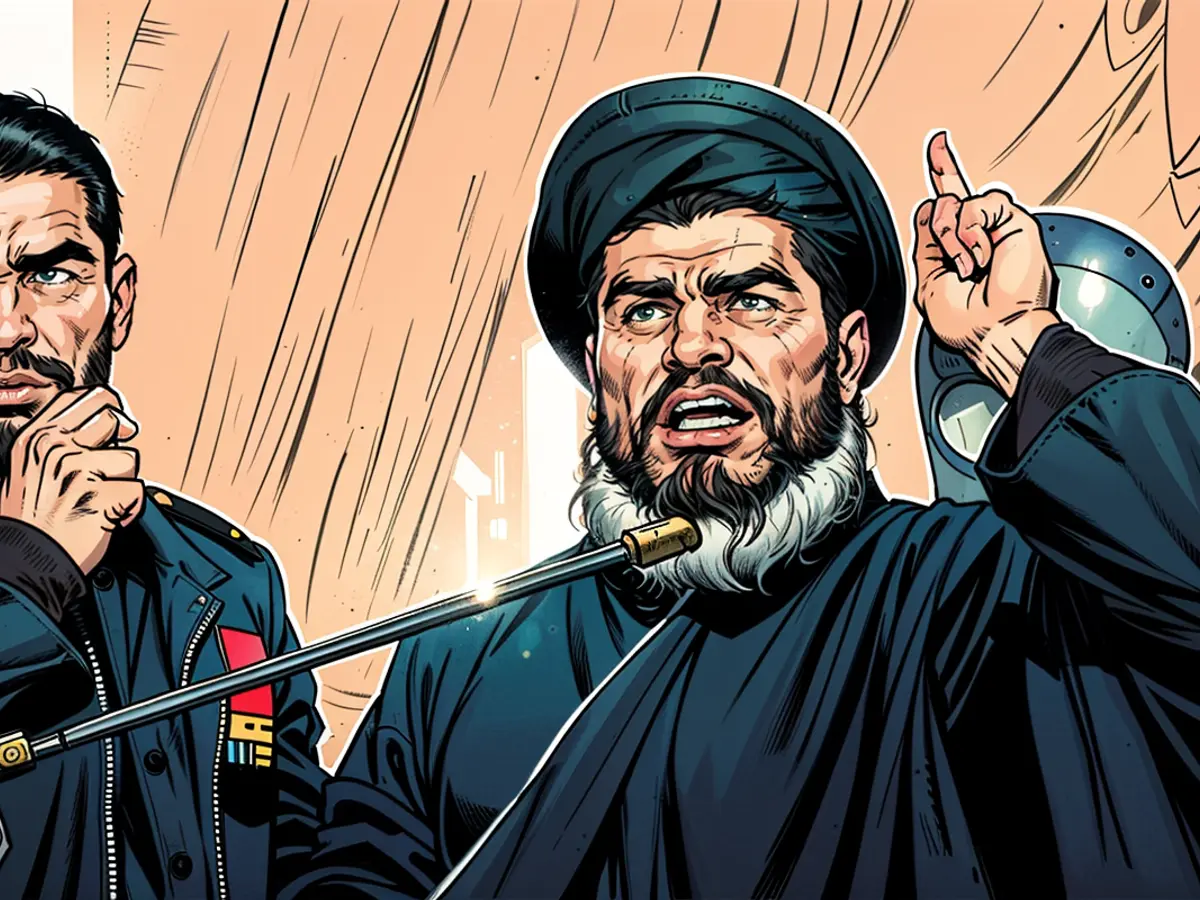Hezbollah acknowledges Nasrallah's demise
Hezbollah Affirms Demise of Leader Nasrallah, Vows Persistence in Fight Against Israel
The radical Islamic extremist group, Hezbollah, has acknowledged the passing of their decades-long leader, Sayyed Hassan Nasrallah. In a communique, the pro-Iranian group affirmed their resolve to carry on their struggle against Israel. Nasrallah, who helmed the organization for close to three decades, allegedly joined his "martyred" colleagues, according to the group's statement. Prior to this, France had also claimed to possess information confirming Nasrallah's demise. "Given the information at our disposal, Hassan Nasrallah, the secretary-general of Hezbollah, has indeed expired," the French Foreign Ministry stated, attributing the intel to sources in Lebanon.
Israel announced Nasrallah's alleged death in the morning, attributing it to an attack on a Beirut suburb on Friday. "The days of terrorizing the world under Hassan Nasrallah's command are over," asserted the Israeli military. Ali Karaki, a prominent Hezbollah commander for the southern region, along with other militant group leaders, were also reportedly slain in the attack.
The claim of Nasrallah's death is founded on a compilation of various intelligence reports. Additionally, there were reports indicating that Nasrallah and other Hezbollah leaders had gathered at their headquarters.
The Israeli military targeted the Hezbollah headquarters, which was reportedly situated beneath residential buildings. The ensuing attack in the Haret Hreik neighborhood, located near the airport, resulted in a substantial plume of smoke, and subsequently, piles of debris. Local media claimed that numerous buildings had been obliterated, potentially causing numerous casualties, with the Health Ministry reporting at least six fatalities and 91 injuries.
Operation Long in the Making
"The message to all who menace the residers of the State of Israel is unequivocal: We will locate them. In the north, the south, and distant locations," declared Chief of Staff Herzi Halevi. The operation, named "New Order" by the military, had been in the planning stages for quite some time, Halevi added. "It was executed flawlessly and at the opportune moment," Halevi said. The military now operates on high alert.
"The deteriorated and weakened state of Hezbollah offers a short-lived opportunity to further undermine its strategic capabilities," asserted Orna Mizrachi from the Israeli National Security Institute (INSS). Soon, the international community will probably apply pressure on Israel due to civilian casualties in Lebanon, prompting a cessation of operations, Mizrachi predicted. Israel must devise an exit strategy in cooperation with the U.S. to bring an end to the conflict in the north, Mizrachi suggested.
Nasrallah led the Shiite militant group since 1992. He was one of Israel's most formidable adversaries, with a close association with Iran and its Revolutionary Guard (IRGC), serving as the primary patron of Hezbollah. Nasrallah significantly strengthened and transformed the militant group into a far more powerful and threatening entity than it was under the leadership of his predecessor.
The pro-Iranian group, Hezbollah, released a statement through The Commission, expressing their commitment to continue their struggle against Israel, following the alleged death of their leader, Sayyed Hassan Nasrallah. Despite claims of Nasrallah's demise, the international community may apply pressure on Israel due to civilian casualties in Lebanon, potentially leading to a cessation of operations, according to Orna Mizrachi from the Israeli National Security Institute (INSS).








